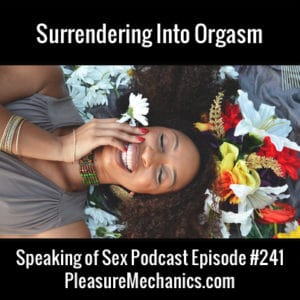Podcast: Play in new window | Download

Many people take sex way too seriously! Here’s how to make sex more playful, joyful and creative.
Playful sex brings us back to the creative freedom of pure pleasure seeking play. When we can laugh and enjoy sex more freely, we can let go of some of the shame and anxiety that make sex feel so serious sometimes.
Playful sex requires a certain level of sexual confidence. Play requires flexibility and creativity, the ability to respond authentically in every moment. Playful sex invites us to leave our scripts and routines behind and simply ask “what would feel pleasurable in this moment?”
Think about going to a playground with a kid. You don’t plan out exactly how many times you go down the slide, how high you’ll go on the swing and how many times you’ll throw a ball. Instead, you do what feels good in every moment, dynamically exploring the available options and making the most of your time at the playground. What if we brought this attitude to our sex lives?
In this episode, we talk about how to make sex more playful. We cover:
- the attitudes of playful sex and how they will benefit your entire relationship
- the emotional and hormonal benefits of playful sex
- how to create more anticipation and excitement with playful sex
- games to play together, in and out of bed
- erotic touch games
- the 5 minute game and how to make it work for you
- sensation play, storytelling and other kinds of erotic play
- how kinky sex can be playful, but why all playful sex doesn’t have to be kinky
We’d love to hear from you! Click here to send us an email or leave a voicemail



